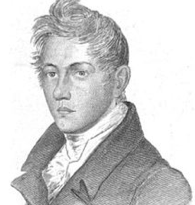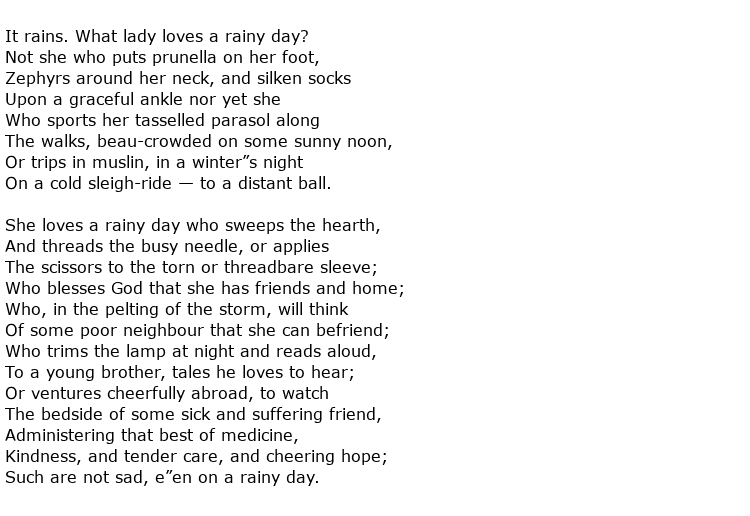 John Gardiner Calkins Brainard was an American poet born at the end of the 18th century who was generally known as John G. C. Brainard. He also practiced as a lawyer and was a newspaper editor at different times. His ancestors included the man who was responsible for founding the English settlement on Long Island that would eventually become New York State.
John Gardiner Calkins Brainard was an American poet born at the end of the 18th century who was generally known as John G. C. Brainard. He also practiced as a lawyer and was a newspaper editor at different times. His ancestors included the man who was responsible for founding the English settlement on Long Island that would eventually become New York State.
He was born sometime during October 1796 in New London, Connecticut, the son of a former Superior Court judge. His famous 17th century ancestor was Lion Gardiner and a small island still exists with his name. Gardiners Island is still in the family and is significant in that it is the largest privately owned island in the whole of the United States. Brainard’s early education came from home tutors but, at the age of 15, he was enrolled at Yale College along with an elder brother. It seems that he did not work hard enough to gain a degree but managed to secure a job in a law office on leaving college. The fact that this establishment was run by another sibling probably helped.
He made progress, studying the law, and was called to the bar in 1819. He intended to set up his own practice in Middletown, Connecticut but had little stomach for the profession. He was, by his own admission, too sensitive a soul for that job so concentrated on writing instead. He managed to get some of his poetry published in a literary paper, based in New Haven, called The Microscope. He made an erroneous career choice once more when, in February 1822, he took up the editorship of a newspaper called the Connecticut Mirror. He genuinely believed that this would help him forge a career as a writer but he was not temperamentally suited to the day to day difficulties and pressures of running a paper.
Brainard did, nevertheless, use this time to establish himself as a well-respected poet, publishing a number of his own pieces in the Mirror. He was very popular within his local community and mixed socially with other writers whenever he could, including McDonald Clarke who was popularly known as the “Mad poet of Broadway”. He was encouraged to compile his first book of poetry and, around 1825, Occasional Pieces of Poetry by John G. C. Brainard was published. It contained pieces that had already been seen in his newspaper but there were other, unpublished poems included in the collection.
Many of Brainard’s poems were of the lyrical, romantic variety. He wrote about the New England landscapes that he knew so well and compiled a number of sonnets. A good example of his work was a poem called Rainy Day which illustrates that, to some, a wet day is an opportunity to get lots done in the house while, for others, it is a gross inconvenience. The poem is reproduced here:

He could have gone on to become an even more prolific and popular poet but for his failing health. By early 1827 he had contracted tuberculosis and was forced to give up the editorship of the Mirror. He returned home to New London to recuperate but, alas, did not make a full recovery. He was still able to write a little, and some of his work was seen in the newspaper.
John Gardiner Calkins Brainard died on the 26th September 1828, aged only 31. He had been well thought of during his short life and fellow poets, including John Greenleaf Whittier, wrote poetic tributes to him. Much of his work has since appeared in anthologies of American poetry.

